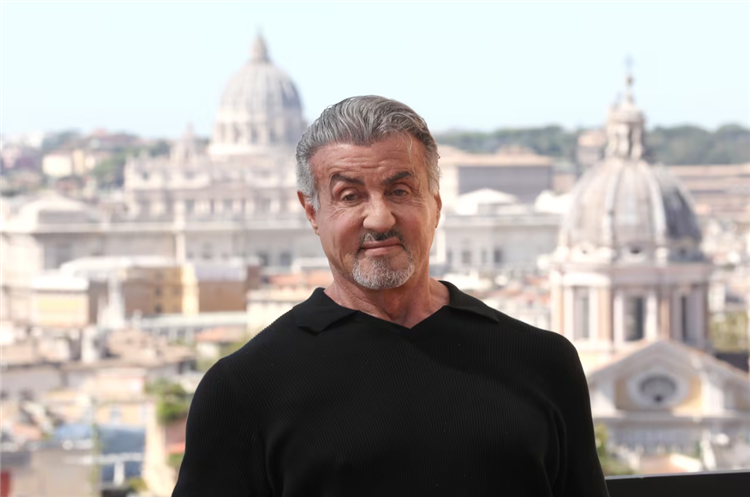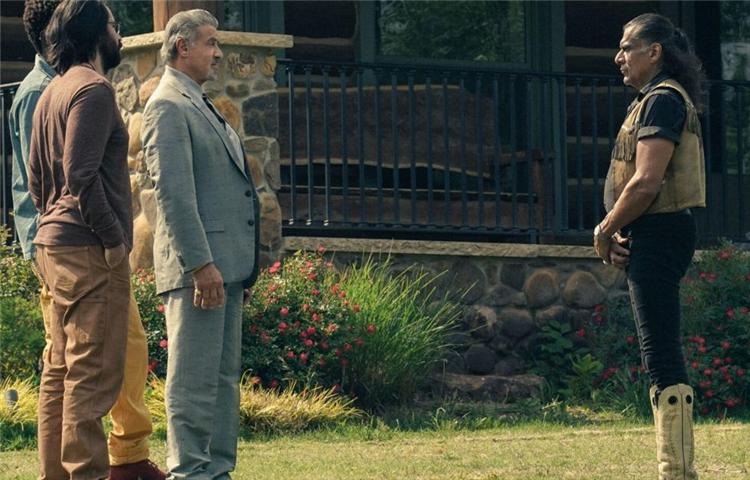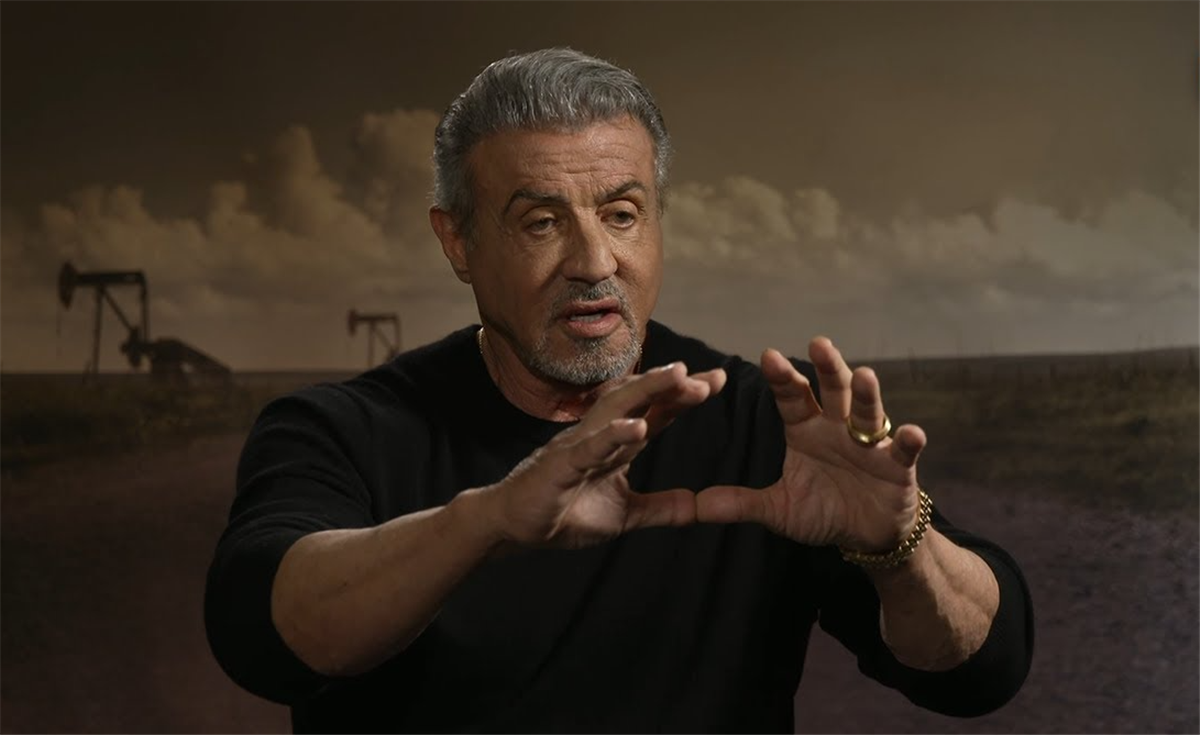The Rocky and Rambo star sat down with Q’s Tom Power ahead of his TV series starring debut
After six decades of work headlining some of Hollywood’s most iconic films, Sylvester Stallone is set to star in his first television series.
But the shift to the small-screen format arguably isn’t the change he’s most excited about: it’s to finally play one of his most coveted archetypes: the Italian mob boss, in the Paramount+ series Tulsa King, created by Taylor Sheridan and debuting this weekend.
“If you’re Italian or even a quarter-Italian, there’s something about playing a gangster, like, ‘Oh, I want to do that, with the suit and tie,” Stallone told Tom Power in an interview for CBC Radio’s Q.
For Stallone, who is by now synonymous for playing Rocky Balboa and John Rambo, that role never presented itself — until now.
In Tulsa King, Stallone plays Dwight “The General” Manfredi, a New York Mafia capo who has just been released from a 25-year prison sentence. He’s quickly sent to Tulsa, Olka., a relative backwater at least as far as organized crime goes.
“He has two choices: either a fresh start or just die of loneliness out there. And he starts to build this family of misfits,” said Stallone.
“That’s what I thought was intriguing, that it’s not your typical [Mafia story that] takes place in the Bronx.”
In Rocky and Rambo, Stallone has become known for embodying tough guys who were nonetheless underdogs with big hearts. He’s trying to imbue the same qualities in Tulsa King’s Manfredi.
“He’s not your typical gangster. He’s maintained his sense of humour to keep him from going stir crazy and mad,” he said.
Early into the show, viewers will learn about the character’s checkered past with his family, including his wife and daughter, and follow his efforts to mend those connections.
“We’re going to see that there’s something, there’s a regret and a heartbreak to him. And that’s going to drive a great deal of this show. And it even makes him more relatable to anyone who has a family,” said Stallone.
Why Rocky had to lose

It’s that vulnerability that makes Stallone’s characters more than one-dimensional bruisers. Many characters in modern action films and shows, he said, only “kick ass” and seemingly shrug off both physical injuries and personal humiliations along the way.
“That’s not real. The audience can’t relate to that,” he argues. “Everybody gets hurt, either metaphorically, symbolically or physically. You root for that person who gets hurt [and] gets up. Because we all get knocked out. That’s just a credo I’ve followed my whole life.”
Stallone, famously, didn’t win the final fight of the 1976 classic, Rocky – Rocky Balboa loses to Appollo Creed by decision. But he says “it was a battle” to sell the story, which Stallone wrote himself, and resist changes from others who insisted Rocky should emerge triumphant at the end.
As Stallone tells it, he fought tooth and nail to keep the pivotal scene the night before Rocky’s bout with Apollo Creed, where Rocky confides to his girlfriend, Adrian (Talia Shire), that he doesn’t think he can win.
“Not all of us are ever going to be the champion. But we can go the distance. We can put up a great fight,” he said. “It just proved to her that he wasn’t a bum from the neighbourhood. And that’s something that’s attainable.”
After Stallone filmed the scene with Shire, the skeptics’ tune had changed.
“The next day, the scene they hated, the producers come out and they go: ‘Sly, that’s the best friggin’ scene in the movie.’ And I went, ‘I know. That’s why I had to do it.'”
Stallone had a similar backstage battle in the making of First Blood, when he argued for the main character, John Rambo, to survive rather than die at the hands of his mentor Sam Trautman (Richard Crenna) at the film’s conclusion.
“I said, I can’t do this. There’s too many guys out there like Rambo with PTSD … just killing themselves because they can’t cope,” he said.
“So I felt that’s not the message — that that’s the only way out, is to die?”
Test screeners for the film included the version with Rambo’s death, and were reportedly panned by audiences. That convinced the studio to go with Stallone’s version with Rambo surviving. It helped cement the character’s legendary status in American film — not to mention made him much easier to bring back for multiple sequels.
‘I’ve never seen gangsters do that before’

Stallone said he hopes his legacy of complex characters will continue with Dwight Manfredi — and in the process, add some welcome twists to the well-worn mafia tropes that mix it up along with the anticipated fisticuffs and explosions.
“Words can still penetrate all the muscles. And that’s why I do scenes where, especially you’ll see coming up in Tulsa King, they’re pretty emotional,” he said.
“[They’ll say,] Jesus, I’ve never seen gangsters do that before.”
